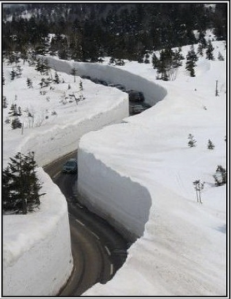23
Mar
Preparing Your Vehicle for Winter Weather
Even for a “born and raised” Pennsylvanian, winter is tough. It never ceases to amaze us, that after all these years, we have yet to become accustomed to the excruciatingly low temperatures, massive amounts of lake effect snow, and blizzard and ice storms. The following tips should ease the pain just a bit by providing you with valuable information on how to prepare your vehicle for the long winter months.
- Invest in snow tires- For most Pennsylvanians it is
 wise to invest in snow tires in order to survive the negative temperatures, slush, snow, and ice. In areas such as Northwest PA it will snow for at least 5 months out of the year. Pennsylvania’s experience winter weather conditions for almost half of the year and deem winter tires a necessity!
wise to invest in snow tires in order to survive the negative temperatures, slush, snow, and ice. In areas such as Northwest PA it will snow for at least 5 months out of the year. Pennsylvania’s experience winter weather conditions for almost half of the year and deem winter tires a necessity! - Service vehicle– First, choose a mechanic you trust to service your vehicle. The mechanic will ensure the wiper blades and brakes are in functioning order, add any necessary windshield wiper fluid, check battery levels, confirm all lights and heater/defroster are operational, and check air pressure levels in tires as well as tire tread depth. Remember to periodically perform a self-check ensuring that all above mentioned services are in working order throughout the winter months.
- Prepare an emergency kit– It is in your interest to prepare an emergency kit and store it in your vehicle for the winter months. It is recommended that each kit should at least include non-perishable food, water, first-aid supplies, warm clothes and a blank, a small snow shovel, and a cell phone and car charger.
- Keep a snowbrush and ice scraper handy- Reduce time defrosting your windshield by brushing off the snow and using a handheld ice scraper. These tools expedite the defrosting process and come in handy for those who are unable to park in a garage.
- Ensure your gas tank is half full- It is crucial to make certain that your gas tank stays at least half full during the peak winter months. Condensation can build up in near-empty gas tanks in extremely cold temperatures. The condensation causes fuel freeze-up and an inactive battery start up.
To find out more regarding vehicle preparation, visit our valued customer’s website (http://www.dot.state.pa.us/). Please leave a comment below if you have any questions regarding these 5 tips or you would like to give your personal advice on the topic!